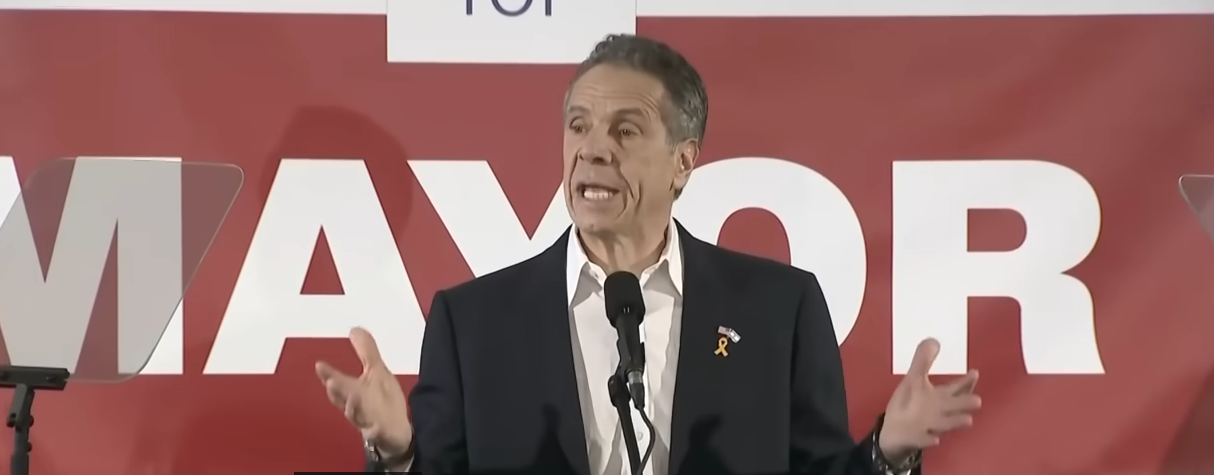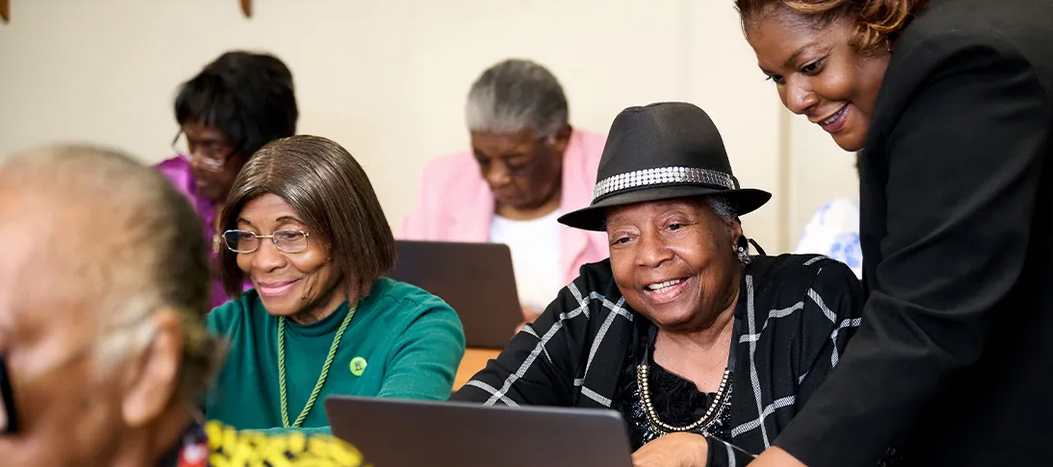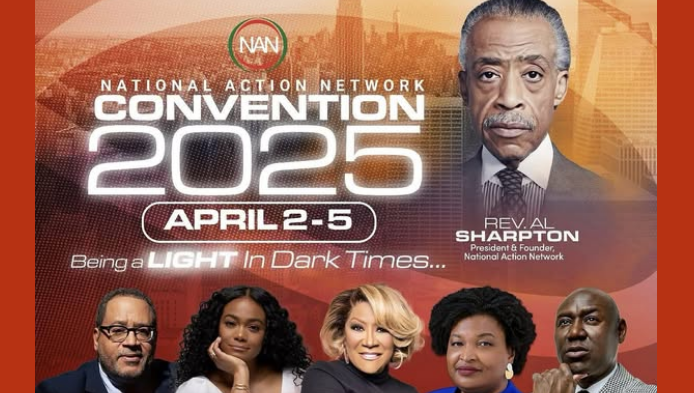City Hall meeting: Bratton, de Blasio, Sharpton. How long can mayor avoid speaking truth about racism on the police force?
[Speaking Truth To Power]
Should Black New Yorkers Trust Mayor de Blasio and Commissioner Bratton to Protect Them?
Part of the problem in policing in New York City is that few people want to speak honestly about race matters.
In the wake of the chokehold killing on Staten Island of Eric Garner and the chokehold of a pregnant Brooklyn woman by NYPD cops, Mayor Bill de Blasio and Commissioner William Bratton met with political and community leaders last week to talk about the divide between the NYPD and New York’s Black community.
However, did anything of substance really get addressed during this City Hall photo op?
Last week’s City Hall roundtable convened with officials of city government along with community leaders and members of the clergy. Mayor’s de Blasio was joined by police Commissioner William Bratton and Reverend Al Sharpton. The meeting took place to address the problems between police and Black New Yorkers.
The event came about in the wake of the chokehold killing of 43-year-old Staten Island resident Garner by Officer Daniel Pantaleo—a cop who has several prior complaints against him by Blacks. Garner was targeted by police for supposedly selling bootleg cigarettes. The killing of Garner was followed by the chokehold of a pregnant woman, in Brooklyn—for grilling food on the sidewalk outside her home, by another NYPD officer.
At the roundtable discussion, Mayor de Blasio expressed his sympathies to Garner’s family. “On behalf of all New Yorkers, I extend my deepest sympathies to the family of Eric Garner,” said Mr. de Blasio. “On this day we have received the Medical Examiner’s findings concerning the cause of his death. My administration will continue to work with all involved authorities, including the Richmond County District Attorney, to ensure a fair and justified outcome.”
The Medical Examiner ruled the death a homicide as a result of the strangle.
Reverend Sharpton reminded Mayor de Blasio that Blacks in New York City invested hope in him with their votes to help elect him. “I think that your ability to show some sensitivity is what raised hope and gave you the plurality that you got to become mayor,” said Sharpton. “But now, I think we’ve got to go from that hope to actuality.”
Sharpton also told the mayor “If Dante wasn’t your son, he would be a candidate for a chokehold.”
Dante is the bi-racial son of the mayor. Sharpton also said that one of the ways to stop police from their misbehavior is to “perp-walk one of them that did it.”
Commissioner Bratton—who was characterized by Mayor de Blasio as “the finest police leader in the United States”—basically, singled out poor training as the primary problem with the NYPD.
According to Mr. Bratton “Training is the absolutely the essential catalyst for, out of this tragedy, we find opportunity.”
During the sit-down, Mayor de Blasio promised that things would change between the NYPD and the Black community: “I’ve said that we would make change, and we will. As mayor, I remain absolutely committed to ensuring that the proper reforms are enacted to ensure that this won’t happen again.”
Black New Yorkers should remember this promise—and pay close attention to the “proper reforms” that will be “enacted.”
Unfortunately, it’s hard to have any confidence that the “proper reforms” will be made.
First of all, will the community have any input or will these changes be made, as usual, by White men who run the police force? And when these modifications are made will there be harsh penalties for police who violate them?
One would like to be optimistic, but it’s hard to see how Black New Yorkers—and Blacks in America—will get meaningful change regarding police misconduct when White men are the ones making all the decisions.
In this City Hall gathering there was much talk by Commissioner Bratton and Mayor de Blasio about training. But Rev. Sharpton was right, the problems between the NYPD and Blacks has little to do with training—but has everything to do with police prejudice and institutional racism.
Sadly, during this event none of those who will be making the decisions that will affect the lives of Black New Yorkers wanted to talk about racism. No surprise there.
White America always runs from any honest discussion of racism; indeed, Attorney General Eric Holder famously called America a “nation of cowards” in this respect.
Worse of all, though, is the fact that historically America has much invested in criminalizing African-Americans—this is one way to justify the historical wrongs inflicted. And, under the guise of “fighting crime” the war against Black America continues.
Let’s remember this: Black incarceration rates continue to rise disproportionately even though overall crime has been falling for decades. “War on drugs,” or, war on Blacks?
If Mayor de Blasio wants to assure us of his sincerity he should denounce this “broken windows” police policy favored by Bratton—and give some serious thought to pink-slipping this commissioner. Bratton endorses the so-called “zero tolerance” policy. What in life is based on “zero tolerance”?
“Zero tolerance” is another one of these euphemistic terms use in the fight against Black people. Do you ever see these tactics being done in White neighborhoods? For that matter where is the “zero tolerance” on police brutality?
Black and Hispanic New Yorkers, along with Whites of conscience, rallied together and attacked the Stop-and-Frisk apartheid-type policing, forcing its significant decline.
But is “broken windows” really a big improvement? The “broken windows” policing basically theorizes that small crimes should be tackled aggressively to discourage large crimes. Therefore, a man, who might have been selling bootleg cigarettes, although in the case of Garner he had denied doing it at the time, gets killed by a police chokehold and a pregnant woman gets put in a chokehold for the “crime” of grilling food on the sidewalk outside her home.
Does this kind of nonsense happen anywhere except where Black people live? Keep in mind, while they are arresting Black people and giving them summonses for these “crimes” some Wall Street master thieves are walking around richer from ill-gotten gains—secured by all those they fleeced out of their pensions and savings.
Isn’t something really wrong with this overall picture?
If they want to lecture us about “zero tolerance” and “broken windows” then shouldn’t the NYPD be arresting Wall Street bankers and money-changers who’ve committed the biggest crimes imaginable? But, again, most of this lip-service is bull. Fighting and victimizing Black people is the real goal here. Can you imagine an NYPD officer walking to a banker and asking him or her about involvement in financial chicanery, and then at some point applying a chokehold on their neck?
Ever notice how these sanctimonious “law and order” folks never want to talk about the obvious connection between poverty and crime? In fact, they act as if it’s absurd to point out that most of the crime in Black America is rooted in the economic destabilization Blacks have been battling ever since Slavery.
Regardless of how much statistics they concoct, Blacks are no more criminal than Whites.
There’s another point to make on the connection between economics and the criminalization of Black people. Because of the revelations by a few former cops—Officer Adil Polanco, Officer Adrian Schoolcraft and Officer Craig Matthews—we know the NYPD has a quota system where they target Black people for writing up tickets.
We should now be clear on the fact that the system is trying to shrink budget deficits on the backs of Black folk. If that wasn’t bad enough we know that many White communities, including here in upstate New York, are economically dependent on the prison industries in their towns—where they are warehousing Black people. A few months ago a Wall Street Journal article quoted a mayor of a Pennsylvania town complaining that a prison closing was devastating the economy.
Moreover, these prison communities get census dollars for those inmates—at the expense of the deprived communities where those prisoners came from. Perpetuating crime is profitable for some—especially, when they’re making those profits by abusing Blacks.
The awful truth here is: we will only get a police force that respects the Black community when the victims call the shots. White politicians—no matter how well meaning—can’t get the change needed without the people affected in charge.
Black people must continue to fight for community control for those who police Black communities.








